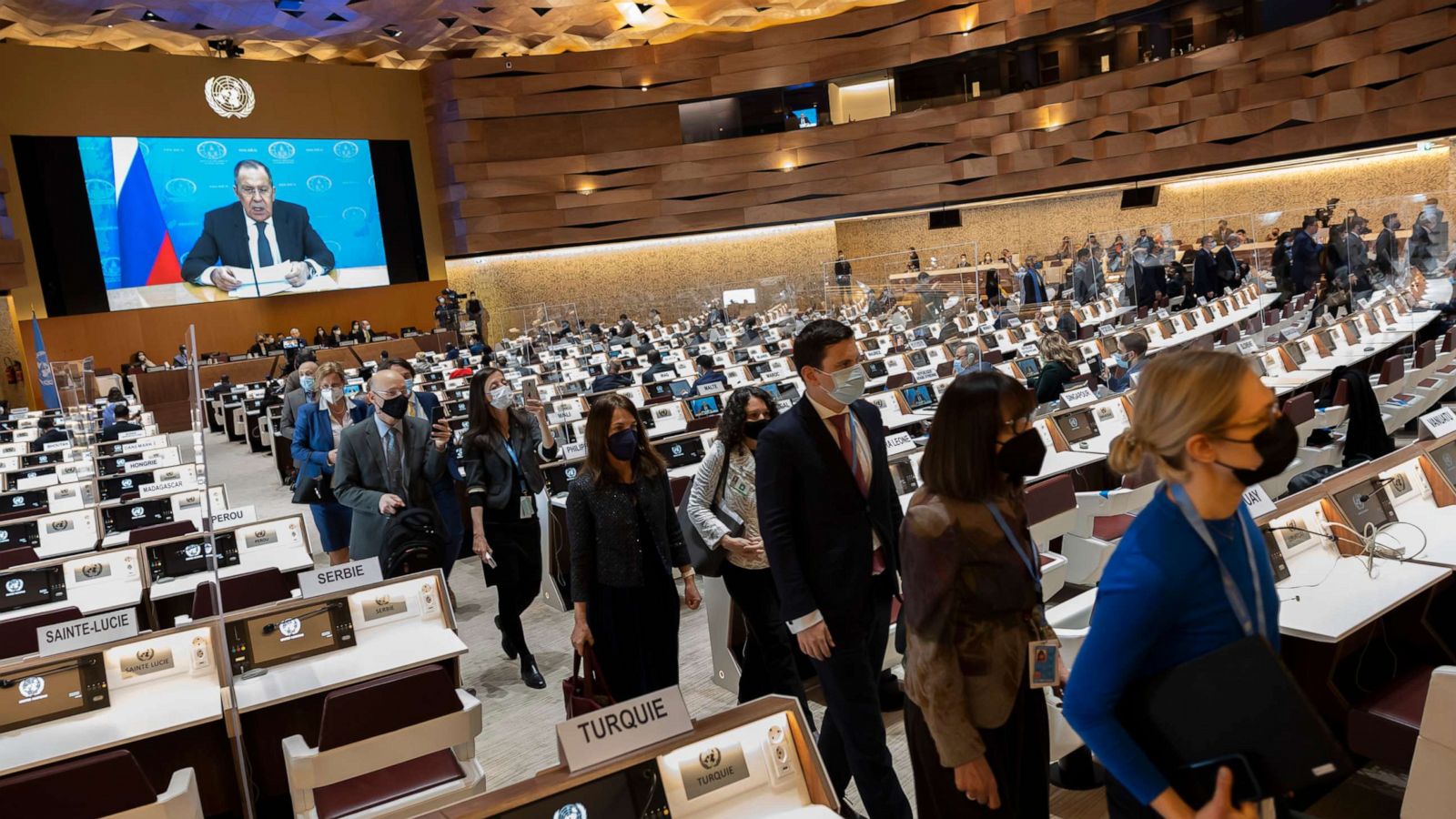- Joined
- Apr 18, 2013
- Messages
- 94,109
- Reaction score
- 82,346
- Location
- Barsoom
- Gender
- Male
- Political Leaning
- Independent
This is when NATO would get involved with the Russia-Ukraine conflict
It's not NATO that scares the nuclear armed Russia, but Western democracy that appeals to all oppressed peoples.
The Kremlin's security thugs have now arrested over 2000 anti-war protestors in Moscow alone.
EU sources say that Germany, Hungary, and Italy are vetoing cutting Russia off from the SWIFT global banking transfer system.

2.25.22
Ukraine is not a member of NATO, though the international security alliance has been a key player in its ongoing conflict with Russia, which escalated to a full-scale invasion by Russian forces Thursday. Since the United States helped form NATO, or the North Atlantic Treaty Organization, in 1949 to counter Soviet aggression in Europe, the alliance has grown to 30 member countries, including three former Soviet republics -- the Baltic states of Estonia, Latvia and Lithuania. In 2008, NATO appeared to open the door to membership to two more former Soviet republics when its heads of government declared that Georgia and Ukraine "will become members of NATO." Neither have formally received a pathway to eventual membership, with corruption concerns and a lack of consensus among members seen in part as holding back Ukraine's invitation. Russian President Vladimir Putin has demanded that Ukraine never join the alliance as he seeks to limit NATO’s presence in Eastern Europe. In the wake of Russia's attack on Ukraine, President Joe Biden announced that NATO will convene a summit Friday to "affirm our solidarity and to map out the next steps we will take to further strengthen all aspects of our NATO alliance." Biden has repeatedly said the U.S. won't be sending troops to engage with Russia in Ukraine, though he has recently authorized the deployment of ground and air forces in Europe to support NATO's eastern flank allies.
"I think we shouldn't get fixated only on Ukraine," Doug Lute, a former U.S. ambassador to NATO and ABC News contributor, told ABC News Live following Putin's speech. "[Putin's] ambitions beyond that are to essentially rewind the clock 30 years and reverse the progress made in Western Europe, certainly Central and Eastern Europe, and if possible, break the ties between the United States and its European allies." Were the conflict to go beyond Ukraine and impact NATO members, that could lead the organization to invoke its mutual self-defense clause -- what's known as Article 5 of the NATO treaty, which states that "an armed attack against one or more of them in Europe or North America shall be considered an attack against them all." If one ally is attacked, the others will respond with necessary action, including armed force, "to restore and maintain the security of the North Atlantic area." One "gray area" around NATO's Article 5 response is Russian cyberattacks and their impacts beyond Ukraine, according to U.S. Sen. Mark Warner (D-Va.), who oversees the Senate Select Committee on Intelligence. If Russia responds to NATO allies' sanctions with cyberattacks, "we are again going into uncharted territory," he said. Last year, NATO said the alliance would consider whether to invoke Article 5 in response to a cyberattack "on a case-by-case basis."
It's not NATO that scares the nuclear armed Russia, but Western democracy that appeals to all oppressed peoples.
The Kremlin's security thugs have now arrested over 2000 anti-war protestors in Moscow alone.
EU sources say that Germany, Hungary, and Italy are vetoing cutting Russia off from the SWIFT global banking transfer system.






